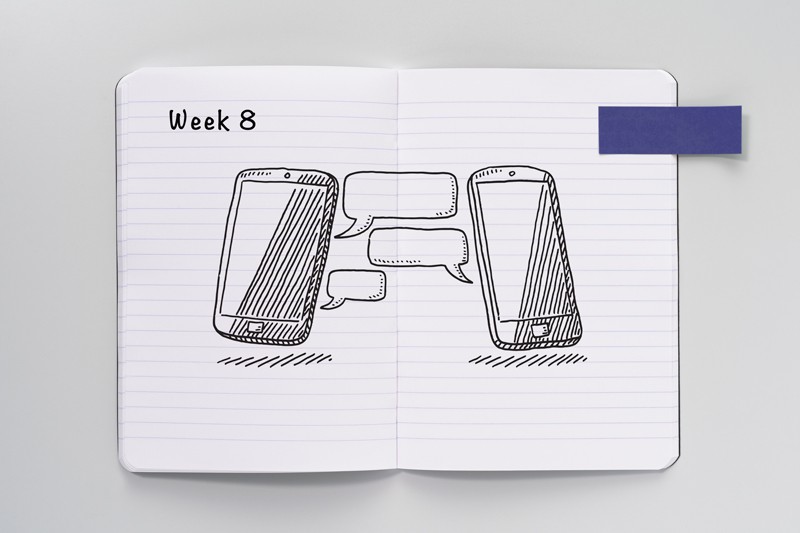Coronavirus diaries: rejection under lockdown
John Tregoning overcomes his peer-review blues.
by John Tregoning
This week’s been tough. That swine, reviewer 2, reached out his long arm and slapped down one of my grants. This was a big application that had taken six months to bring together. Rejection under normal circumstances is grim. Rejection on top of everything else at the moment is brutal. The bad news tipped me into a full-on tantrum.
Ten days after the news, I have rebalanced somewhat. So, I started thinking about how being under lockdown alters the steps that let me bounce back from the inevitable knocks that are part of an academic career.
Step 1: Sulk, swear and hit inanimate objects
Anger does enable an immediate venting of feelings. And I think it is OK to be cross when you get grants or papers rejected; a lot of work goes into them. The only difference is that my children have now been exposed to some industrial language, which I might have normally reserved for the privacy of my office.
Step 2: Get support from other people
My children were keen to help me get over my grant rejection, and, for 10- and 12-year-olds, they do have a surprising insight into the scientific funding process. But it’s not quite the same as getting support from colleagues. My usual front-line cheerleaders are all at work, and although supportive WhatsApp messages went some of the way, it was not the same. Having an actual conversation on the phone with my line manager was much more helpful. As was a Zoom conversation with friends, with moral support from a stiff gin and tonic or two.
Step 3: Not comparing up
Happiness is, by and large, being content with what you have. But seeing other people getting grants and posting papers on social media did not bring the best out of me. The absence of actual people to talk to exacerbated this: I ended up just staring at my phone, instead of being able to sit down with a friend and complain about academia and everything in it (no offence).
Step 4: Exercise
Exercise helps me. This hasn’t changed that much during lockdown. Thanks to an excellent talk from the Imperial College London counselling service, I recently learnt that the adrenaline associated with anxiety can be physically burnt off by doing exercise. Going for a long run up a big hill cleared my head. I am so grateful that in Britain we have been allowed outside for exercise and that this is now unlimited. When it was just once a day, we used our ration to take the children out, which, while pleasant enough, didn’t always clear my head.
Step 5: Green spaces
Alongside exercise, just being outside is restorative. I spent the afternoon yesterday wandering over a series of hills near my home, with no music or company, just thinking to myself. I have had more access to green space since I have been stuck at home, without my normal commute in and out of West London.
Step 6. Do science
Until this week, I’d not realized that just getting on with the science is part of my rejection recovery process. Under normal circumstances, I would be straight back into work as part of normal life, and there would have been less time to think about being rejected. The big holes that homeschooling have put into my schedule give me more time to reflect and agonize over my situation. When I finally got some time to sit down and focus on a block of work — addressing reviewers’ comments to a paper — it was very therapeutic. It restored my self-confidence, and reminded me that, on some level, I know what I am doing.
Step 8. Compartmentalize
Physically leaving my workplace, having a subway journey on the way home to wind down, would normally give me the head space to get into ‘home mode’. Walking down the stairs, even if I do it very, very slowly, is not enough time to achieve this. Apart from going for long runs, I have not really found a good way to compartmentalize, yet.
Step 9. Time
The further in time I am from the grant rejection e-mail, the better I can process it. Eventually, I can even think objectively about how I could have framed my questions better in the grant. Time, as they say, is a healer and we certainly have time at the moment — though, possibly, there is too much of the wrong type of time, especially the type that involves lying awake at four in the morning, wondering what might have been.
By the time you read this, hopefully, I’ll be fully over my latest rejection and ‘back to normal’ at home, at least until the next rejection.
doi: 10.1038/d41586-020-01624-x
Jobs from Nature Careers
- All jobs Postdoctoral Associate (Computer Science/Engineering) University of Miami Health System Miami, United States JOB POST Doctoral (PhD) student position in leukemic stem cell immune targeting Karolinska Institutet (KI) Stockholm, Sweden JOB POST Research Engineer in HDX-MS for the Chemical Proteomics Core Facility Karolinska Institutet (KI) Stockholm, Sweden JOB POST Bioinformatican European Molecular Biology Laboratory (EMBL) Hinxton, Cambridge, United Kingdom JOB POST